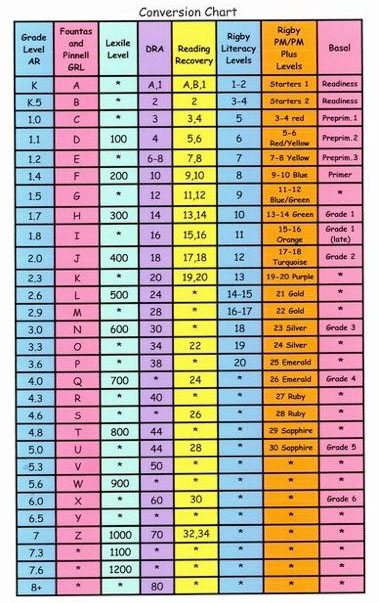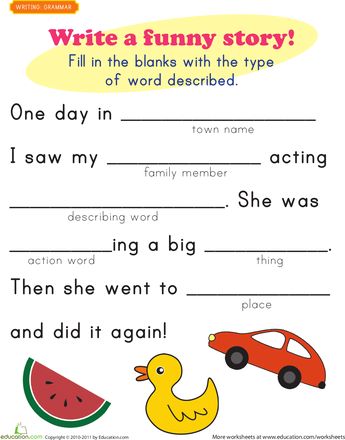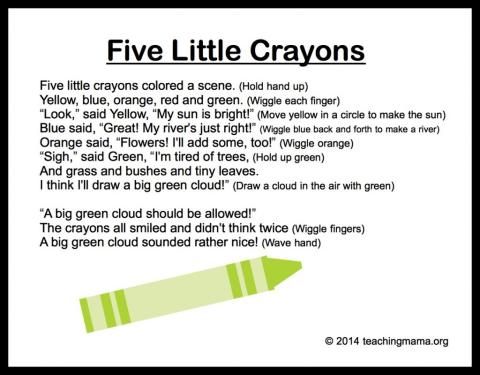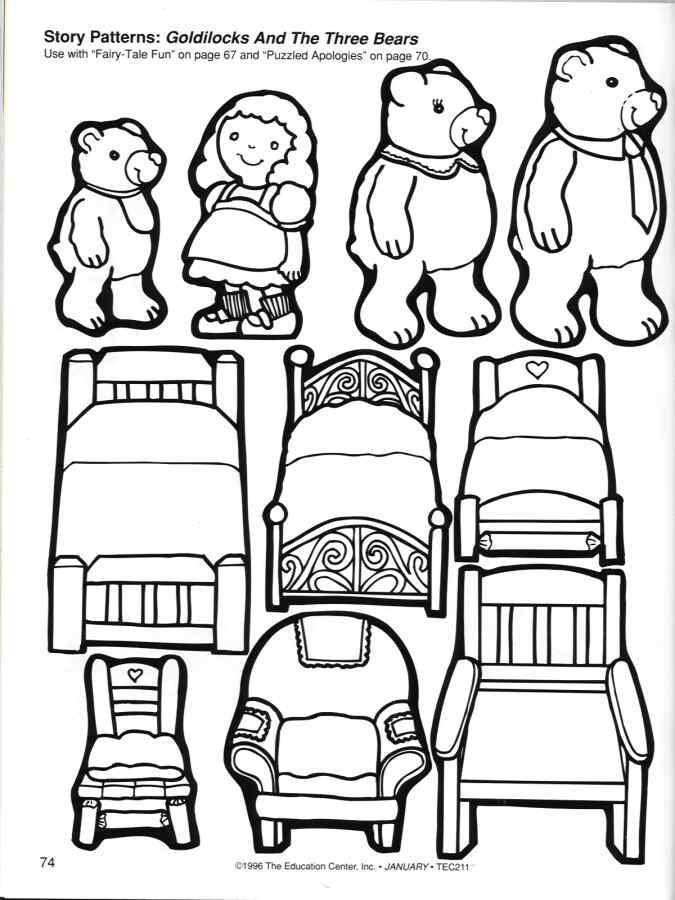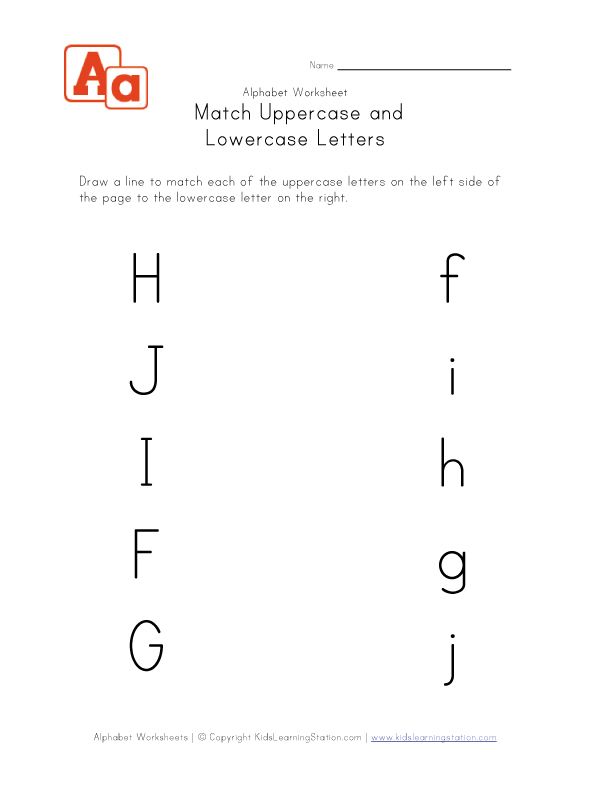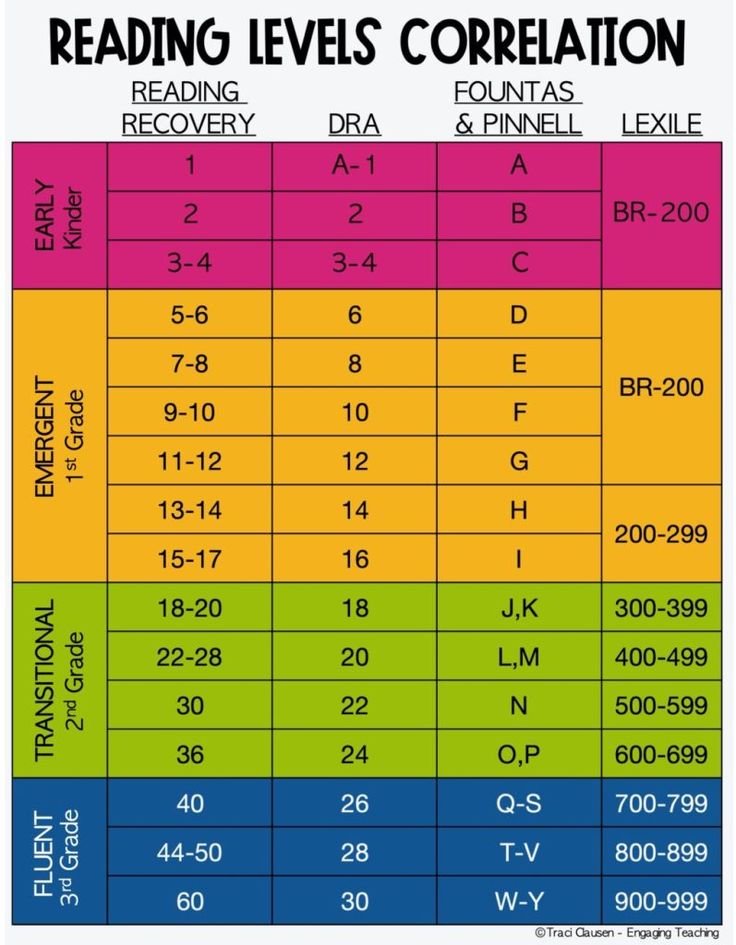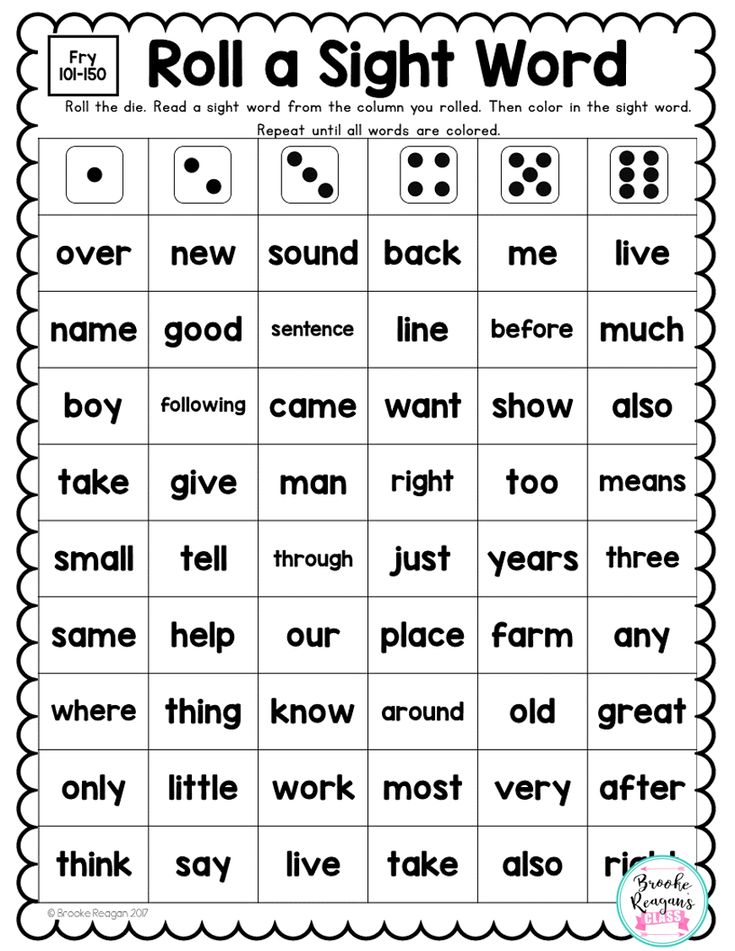Determine lexile level
Lexile and Quantile Measures
Lexile Measures in Nevada
The Lexile Framework® for Reading, commonly referred to as the Lexile Framework, has been linked with the Smarter Balanced summative assessment in English Language Arts for grades 3-8. In addition, the Lexile Framework been linked to the SAT and ACT. With Lexile measures, educators and parents can spur and support student learning.
What Is a Lexile Measure?
There are two kinds of Lexile measures: Lexile reader measures and Lexile text measures. Lexile reader measures describe how strong a student’s reading is. Lexile text measures describe how difficult, or complex, a text like a book or magazine article is. Lexile measures are expressed as numbers followed by an “L” (for example, 850L), and range from below 0L for beginning readers and text to above 1600L for advanced readers and text. Comparing a student’s Lexile measure with the Lexile measure of what they are reading helps gauge the “fit” between a student’s ability and the difficulty of text.
Access communications resources including the Lexile parent guide, educator guide, librarian guide, Lexile map, Lexile infographic and video at Lexile Educator Resources and Lexile Parent Resources.
- Lexile Educator Resources
- Lexile Parent Resources
Lexile Tools
- The Lexile Hub
The new Hub platform provides access to all of the free Lexile tools that support student learning and growth in reading
- Lexile Find a Book
Search among over half a million books using the Find a Book book browser that:
- Offers previews of challenging words and their definitions for each book.
- Identifies the Lexile level and vocabulary by chapter for over 1,600 popular books.
- Creates and manages personal book lists that can be shared.
- Searches by a student’s Lexile measure or range, grade level or interests.
- Lexile Analyzer
Paste or type in text of 1,000 words or less to discover:
- The Lexile range for the text.
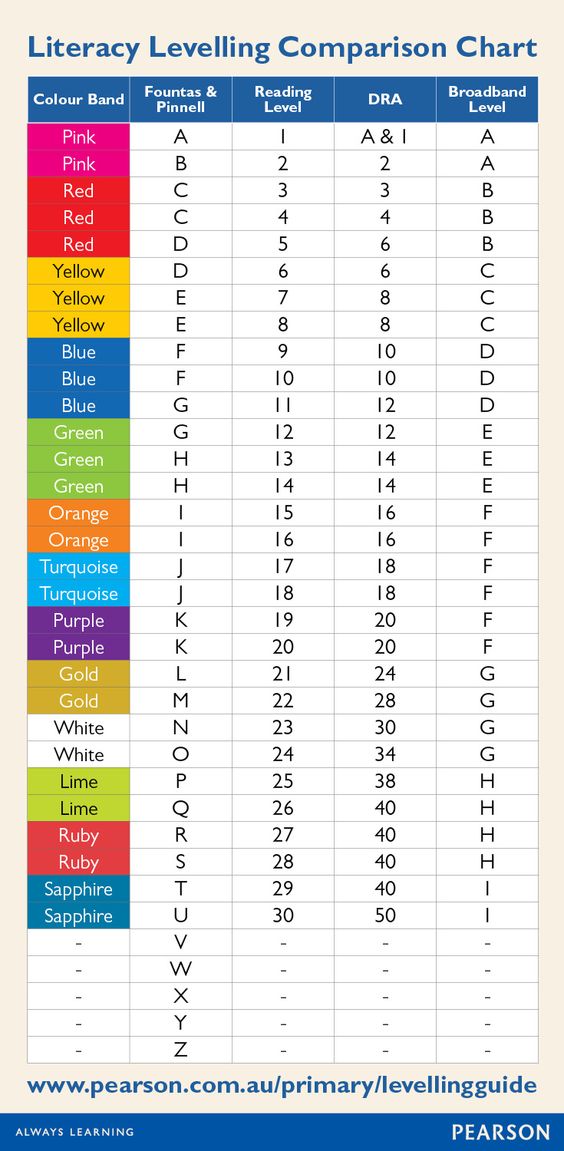
- Early Reading Indicator information for texts 650L and below.
- Lists of similar books.
- Challenging words highlighted in the text along with their definitions, parts of speech, example sentences.
- Toggle to Spanish to paste or type text in Spanish and get a Lexile range.
- Lexile Word Lists
Create your own customized lists of consequential words from a collection of 40 million words based on general and academic domain 1-12 vocabulary. Lists can be downloaded and printed.
- Lexile Career Database
Identify the Lexile level associated with the reading demands of a particular career in this new tool.
- Lexile Grade Level Charts
See how a large sample of students in grades K1-12 who were administered tests that reported Lexile measures performed based on this 2010-2016 research. Interactive charts are provided for descriptive purposes only and are not intended to be interpreted as state performance standards.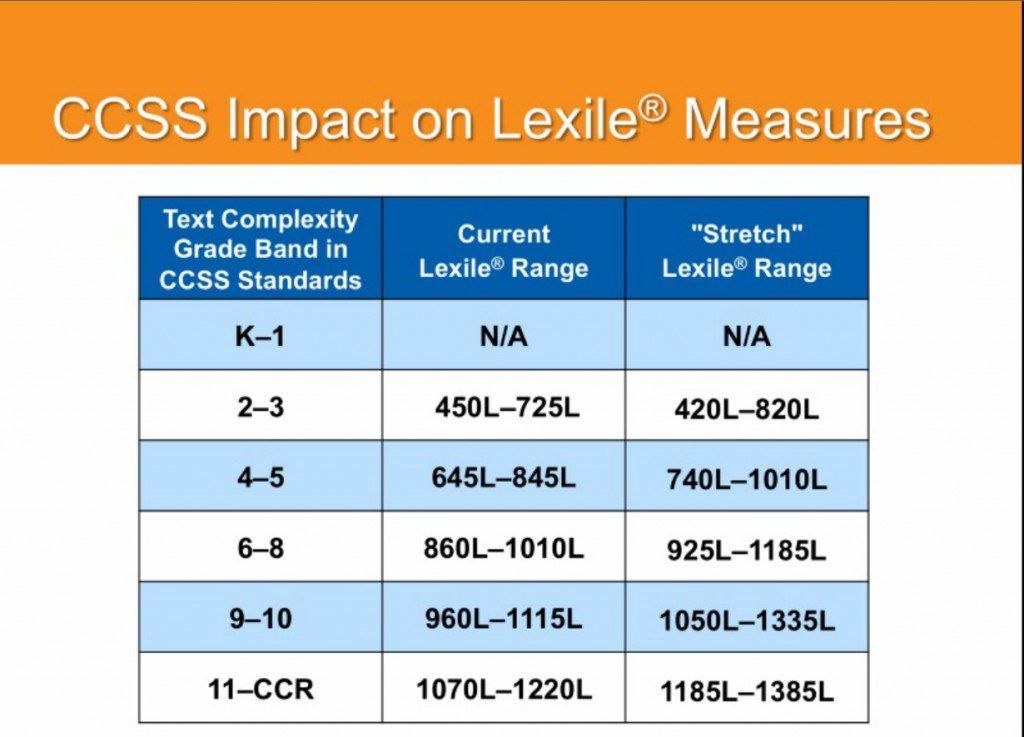
- Lexile Growth Planner
Chart a student’s reading growth across different annual state assessments and forecast future growth. With the Growth Planners, you can:
- Forecast college and career readiness with Lexile measures.
- Compare individual student results to national student performance.
- Explore career options along with expected reading demands.
- View national, state and regional career information.
- Access resources to support growth in reading.
- Lexile Measures Manager
Determine a student's optimal reading measure when two assessments have resulted in significantly differing Lexile measures.
Resources
- Educator Guide
- Lexile Librarian Guide
- Spanish Lexile Measures for Reading
- Lexile Map
- Compare Lexile Measures With Grade Levels
- Lexile Parent Guide
How To Determine Your Child’s Reading Level And Choose The Best Books
When you sit down to read a book, you want to enjoy the story in front of you.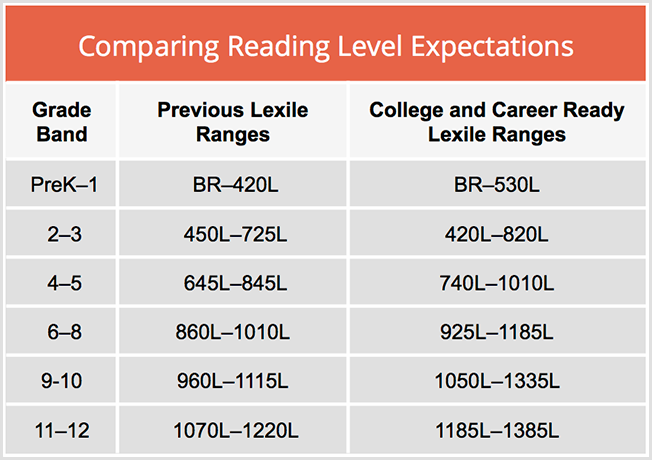 The same is true for your child. That’s why uncovering your child’s reading level is an important step in fostering their love of words from a young age!
The same is true for your child. That’s why uncovering your child’s reading level is an important step in fostering their love of words from a young age!
Consider the different factors that allow kids to enjoy the books they read. For example, does it tie into their interests, and is it slated as an appropriate option for their level? By answering these questions, you can make sure they’re reading books that are just right for them!
If your child is in school, you’re probably no stranger to jargon like “reading level.” But what exactly does Lexile Framework, Guided Reading Levels (GRL), or Developmental Reading Assessment (DRA) actually mean?
Additionally, if your child is just starting to read on their own (or already reading independently) and is learning from home, how can you figure out what reading level is right for them? If any of these thoughts have crossed your mind, you’ve come to the right place.
We’re here to answer your questions so you and your child can sit down and enjoy a good book together!
What Is A Reading Level?
A reading level is simply a measure of your child’s ability to read text.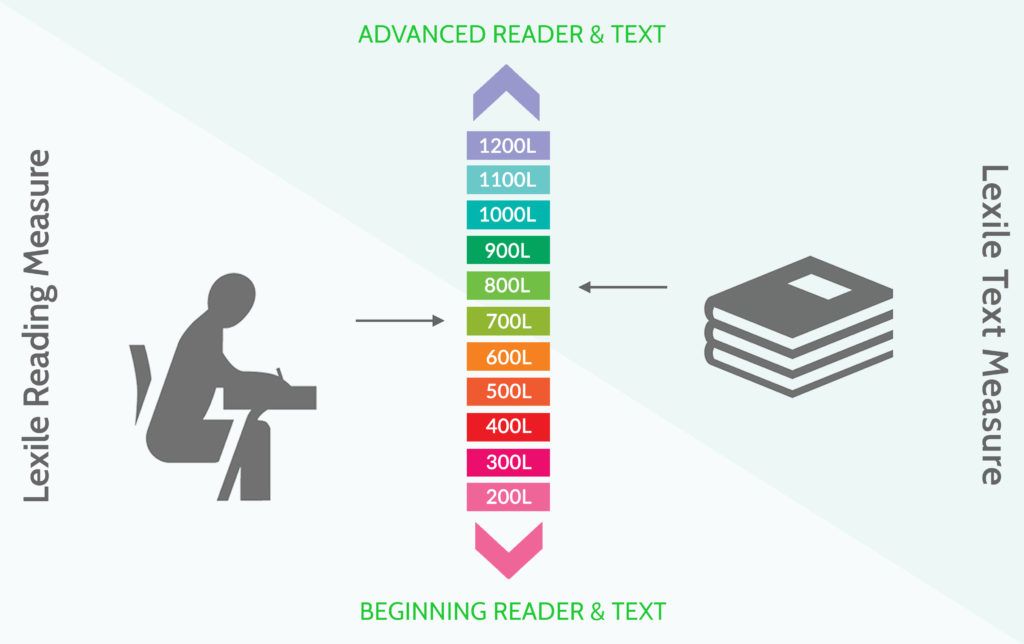 It reflects how well your little one can read independently. Importantly, reading levels help you choose books that are a good match for your child while still presenting a challenge.
It reflects how well your little one can read independently. Importantly, reading levels help you choose books that are a good match for your child while still presenting a challenge.
Keep in mind these levels are meant to be helpful, not stressful. They don’t limit your child, but, rather, help them blossom into a fluent, excited reader.
When your child reads books that are appropriate for their current reading level, it boosts their confidence so they can truly enjoy reading! Also, knowing what level your child is at allows you to work with them to improve their skills.
That being said, it’s important to remember that children are unique and develop differently. Comparing your child to their peers isn’t necessarily the best approach when trying to assess their reading ability.
Why Is Determining Reading Level Important?
It’s helpful to determine your child’s reading level so you can find books that are appropriate for them to read on their own: not too difficult but challenging enough to encourage growth.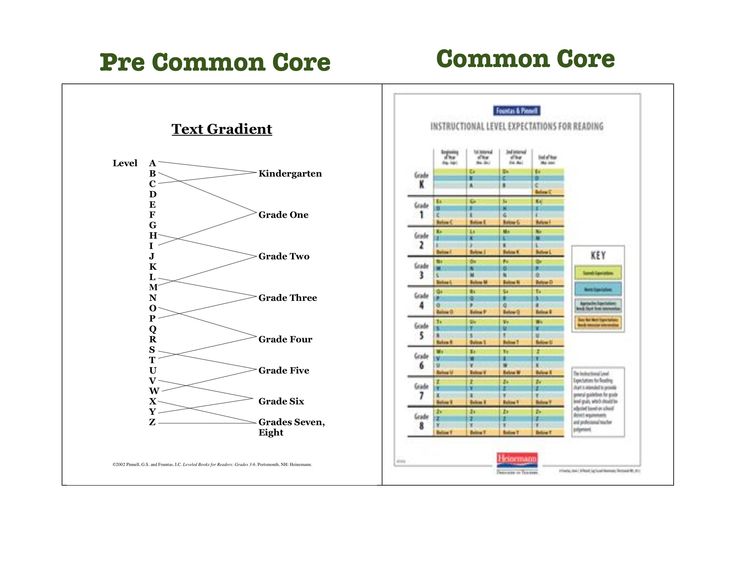
Reading level classification is a convenient tool you can use when searching online or at the library. And when you provide books that are on your child’s level, you create excitement and build their confidence, which can lead to a lifetime love of learning and reading!
If you’re looking for ways to help your little one read at the best level for them, Our new app HOMER Learn & Grow has a Stories section that gives age-appropriate story recommendations!
This is a great resource that takes your child’s specific interests and recommends stories just for them. What’s more, your child can choose to read along or read on their own.
How Is Your Child’s Reading Level Measured?
Your child’s reading level is usually measured at their school in first or second grade, and we’ll show you how that’s done. Here’s a tip: since your child’s teacher knows their reading level, consider asking the teacher (or the school librarian) for books your child can read at home.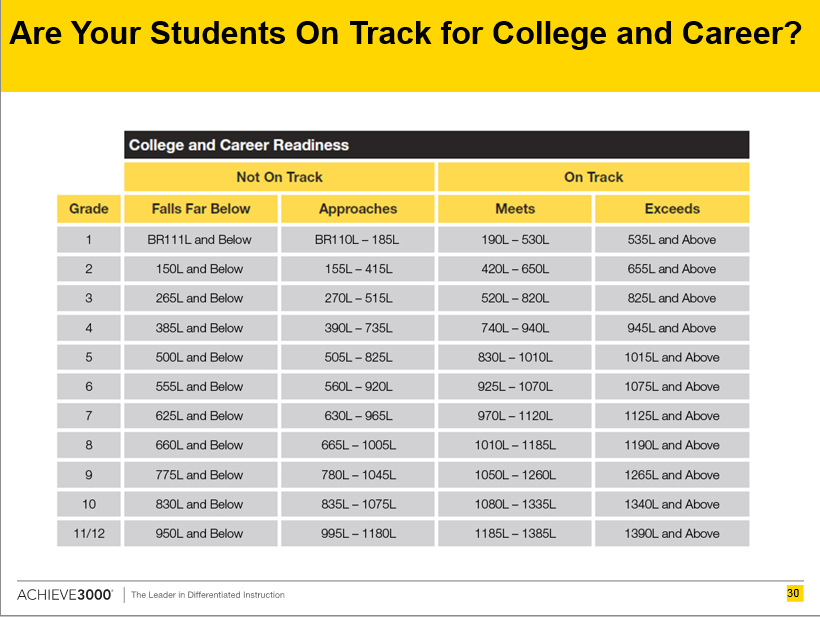
Don’t worry if your child isn’t in school yet or if they’re homeschooled. We’ll show you how you can measure their reading level at home, too!
Before we dive in, it’s important to note that we think of books for kids at three levels: independent reading, instructional reading, and frustrating to read.
As the names indicate, independent reading books are ones a child can read with ease and without support from an adult.
Instructional ones are the books just above independent that teachers might use to stretch a child’s reading as they offer support while the child makes that next step. Finally, frustrating books are too hard for a child to read even with adult guidance.
Now that you have an idea of how to think of the different books your child might encounter, let’s talk about the tools used for determining or describing reading levels.
Lexile Framework For Reading
Lexile Framework For Reading is an educational tool that ranks books by order of their difficulty using a scale called a Lexile.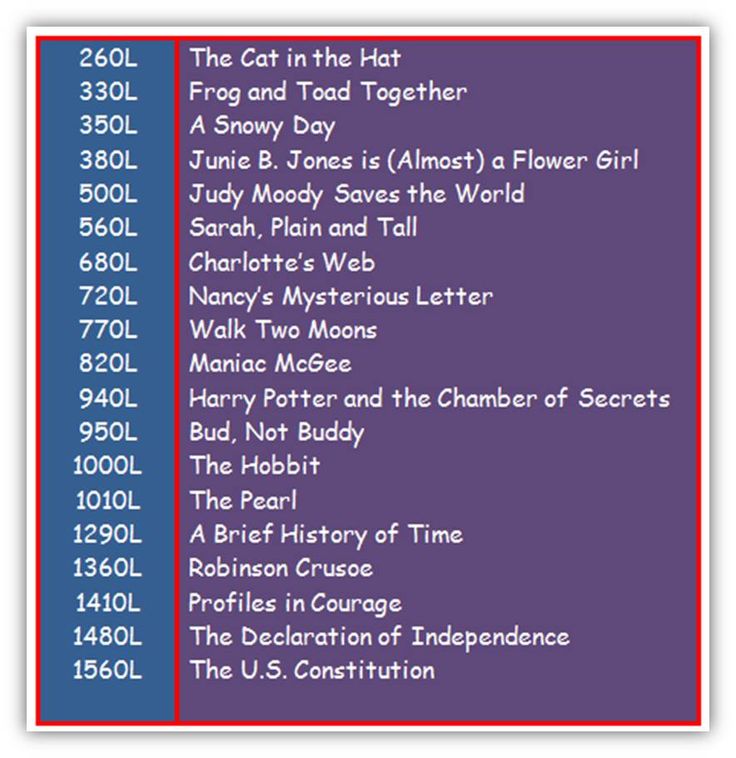 Usually, your child’s teacher will determine their Lexile reading level and then choose books that have a matching score.
Usually, your child’s teacher will determine their Lexile reading level and then choose books that have a matching score.
The Lexile score, or measure, describes your child’s reading ability and matches them with books and other reading materials. This measure ranges anywhere from 0L to 2000L.
Kids are encouraged to read within their Lexile “range” — 50L above to 100L below their actual level. For instance, if your little one is reading with a Lexile measure of 500L, they would read books ranging anywhere from 400L to 550L.
Using standardized assessments, schools will often measure a child’s reading level several times a year to help them select books that are appropriate for independent reading.
Guided Reading Levels (GRL)
GRL is a guided reading system used in some schools.
To determine reading levels using GRL, children sit one-on-one with their teacher and read from a book that’s considered standard for their grade level — a “benchmark” book. GRL books range from A to Z with A being the easiest.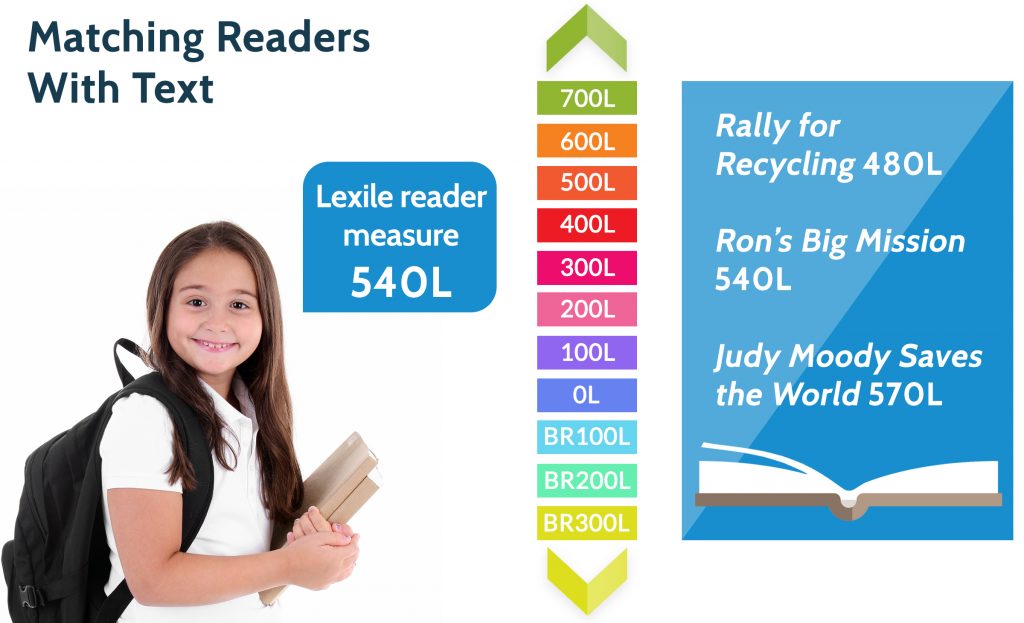
While reading these books, the teacher will take notes on any missed words and ask comprehension questions, such as, “When did the story take place?” or, “What was the problem in the story?”.
Through guided instruction, the teacher will gradually move children into more difficult books.
Developmental Reading Assessment (DRA)
DRA is a standardized reading test given by teachers or reading specialists. As with GRL, children sit individually with the test administrator and read a book.
Several factors are taken into consideration to determine reading level, including:
- Reading comprehension
- Phonemic awareness
- Fluency
DRA books are labeled with an A for the easiest books and then move into a numerical grading system. The levels range from 1 to 80 with 1-3 representing a kindergarten reading level and 80 representing an eighth-grade reading level.
Once a child has a DRA or a GRL level, a teacher or parent can search for the reading level of any particular book and can usually discover either the Lexile, DRA, or GRL of that particular text.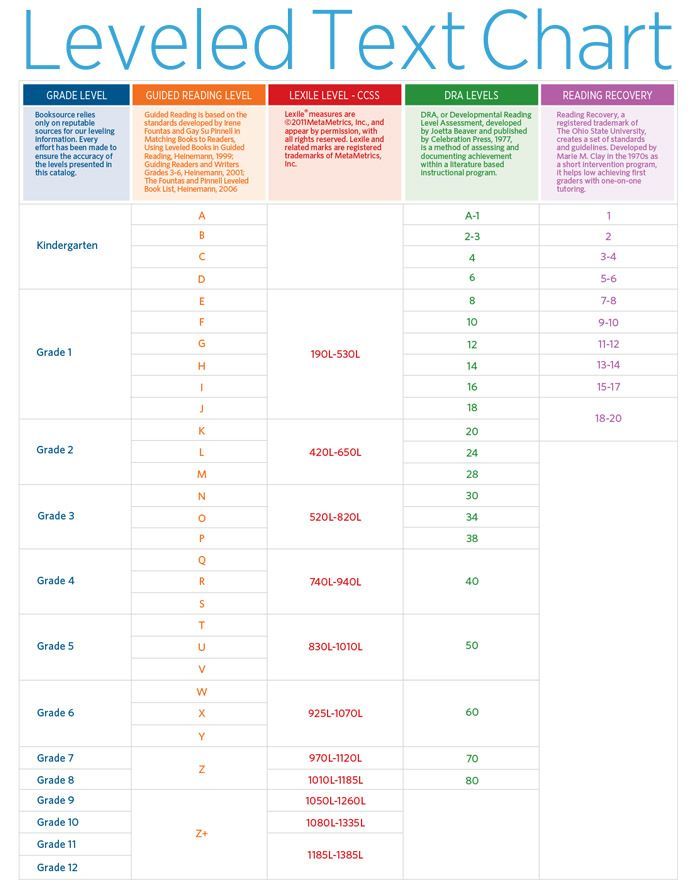 Here’s a chart for your reference.
Here’s a chart for your reference.
At-Home Reading Levels
If you’re looking for a way to find out your child’s reading level without using any of the methods listed above, you might try the five-finger rule.
For the five-finger rule, choose a book and flip to any page. If your child seems to have trouble reading more than five words on the page, it’s a good indicator that the book is too advanced for them.
To be sure, though, you can have your child try another page, especially if they seem eager to read a particular book.
This can be a helpful strategy, but it’s OK to let your child try a book and see how the reading goes. If a book is too hard, most kids will figure that out — and there is nothing wrong with reading books that are too easy!
Sometimes a child may be interested in a book that’s a little too hard for them. If this happens, we encourage you to read aloud to your child. You can also read together by alternating pages, paragraphs, or sentences.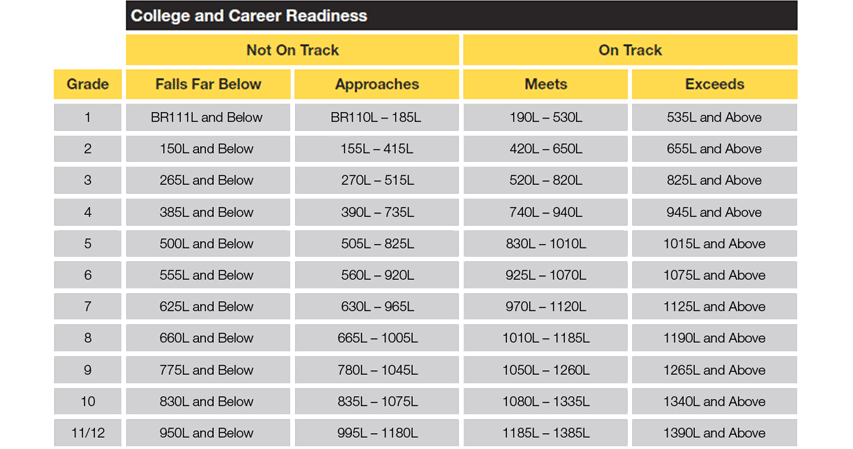
It’s important not to completely avoid books that may be a little above your child’s reading level.
Even if your child struggles a bit to read them without assistance, these books can still be beneficial in helping build their vocabulary, improve comprehension, and increase general knowledge — not to mention, encourage their love of reading!
When your emerging reader seems overwhelmed by one book, you can always give the five-finger rule a try with other books until you find the right match. And if your child is particularly interested in a topic, you can always read the book to them and stop on words you know they can read.
Also remember that when a child is really enjoying a book and highly motivated to read it, they will read at a higher level than if the material is not as interesting to them.
Tip: Most libraries and bookstores have books arranged by reading level so you can easily choose the best one for your emerging reader!
Feel free to ask librarians and knowledgeable staff at bookstores to offer suggestions.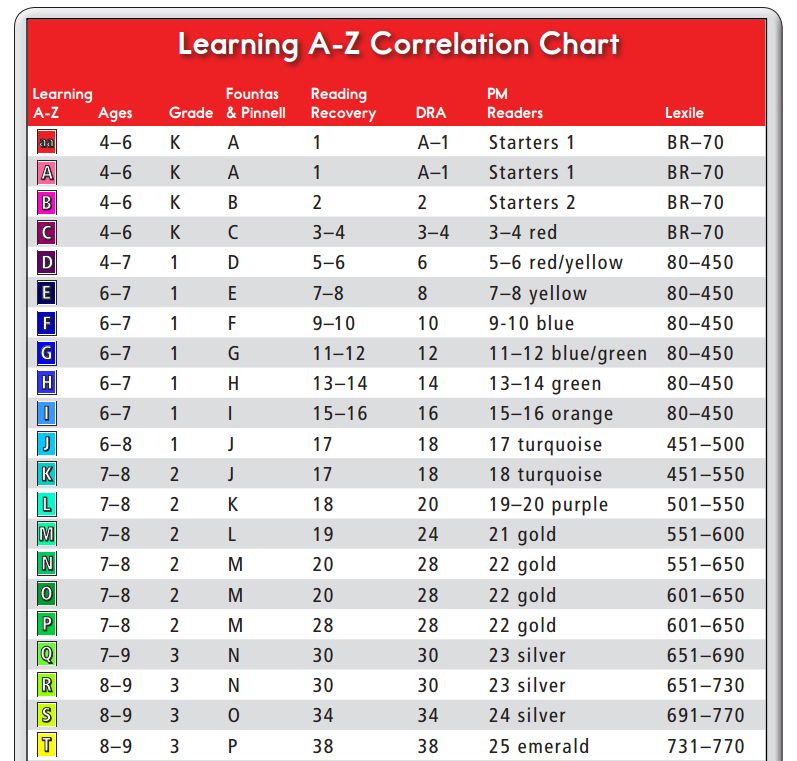 You could even say something like, “My child happily read a Clifford book; can you suggest others at the same level?”
You could even say something like, “My child happily read a Clifford book; can you suggest others at the same level?”
How To Help Your Child Become A Stronger Reader
As we mentioned earlier, you can easily determine your child’s reading level at home so that you can help them choose books that are just right! We suggest incorporating some of the tips below to help your child become a stronger reader.
Start With Clues
- Is your child using “sounding out” techniques to figure out unknown words?
- When your child reads, are they getting tripped up by sight words — common words that are hard to sound out?
- Is your child using pictures to help them understand what is written on the page?
- Is your child using context clues to figure out what word makes sense to come next as they read sentences?
Check Vocabulary
- Play games with your child to see what words they know. For example, say a sentence and point out one word in the sentence.
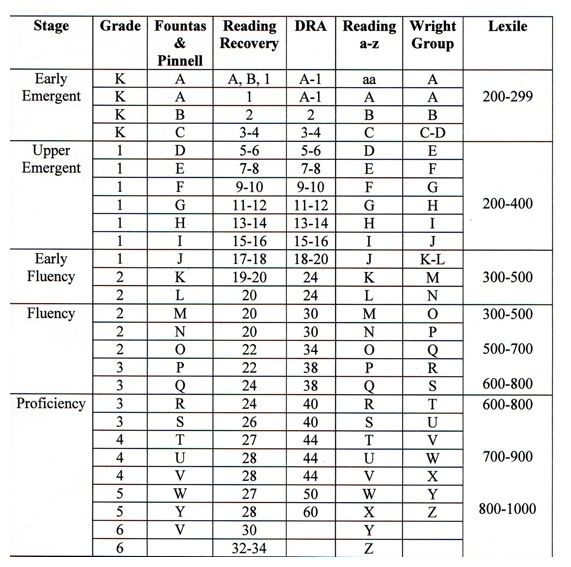 Then ask them if they can come up with a different word (synonym).
Then ask them if they can come up with a different word (synonym). - Play synonym games to see what words your child knows. For example, challenge yourselves to think of 10 or more ways to describe speaking (shout, whisper, mumble).
While you’re talking with your child, describe something specific from your day. Make sure to use interesting adjectives, and don’t hold back from using sophisticated vocabulary when talking with your child.
You can help your child’s vocabulary grow through day-to-day conversations and activities!
Ask Comprehension Questions
Understanding what they read is an important part of your child’s reading journey.
- To check for reading comprehension, we suggest pausing every other page to talk about what you’ve just read. Make this a natural reaction to the story, like you’re thinking aloud about the story or characters, so that it doesn’t feel like a test.
- Consider encouraging your child to act out and retell the story (for younger children).
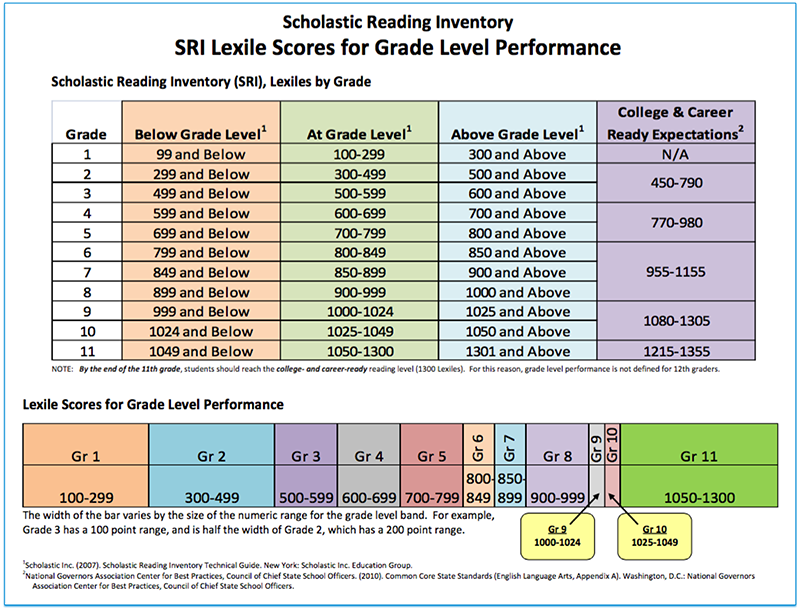
- Try discussing themes/lessons with your child (for older children). Remember: this isn’t a test, but a conversation between book lovers!
Talk To Your Child
When most people implement strategies to help their children improve their reading skills, they often forget about the importance of verbal communication. It’s essential to talk to your child frequently in short and simple sentences.
This includes singing songs, telling them wonderful stories, reciting fun nursery rhymes, and describing the world around them. All of this exposes children to lots of different words. It also helps them learn that language is a powerful tool for communication.
Discover Your Child’s Favorite Books
- Children often choose books that are a little below their actual reading level. At home, this is a good thing. It keeps reading fun and exciting!
- We recommend choosing books that interest your child — with a certain character or activity they like — so they’re curious and excited about reading.
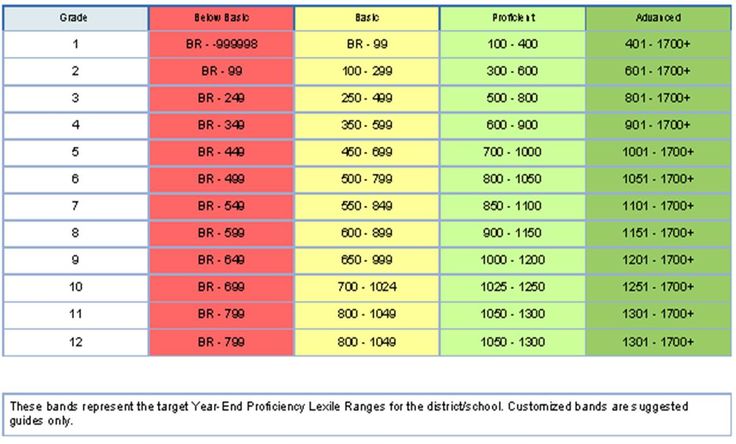
Reading books your child enjoys together can encourage their love of reading. And letting them read those same books to you can boost their confidence over time.
Together, these two activities increase your child’s fluency and reading enjoyment!
Create A Reading Corner
Establishing a reading corner in your house can benefit your child. The setup doesn’t need to be elaborate. This can be a simple, quiet, private area where your child can confidently read independently or with you.
It’s also great for the spot to be well-lit and filled with lots of books your child enjoys reading.
Is Reading The Same Book Over And Over OK?
Just like you might pick up an old favorite book to read, your child may do the same, and that’s OK! At least you know they’re enjoying a good book and the process of reading!
Rereading books can have many benefits for a child, including:
It allows children to get more from the text. Have you ever developed a deeper understanding of a story after rereading it? That’s because the more you engage with a story, the more you can take away from it.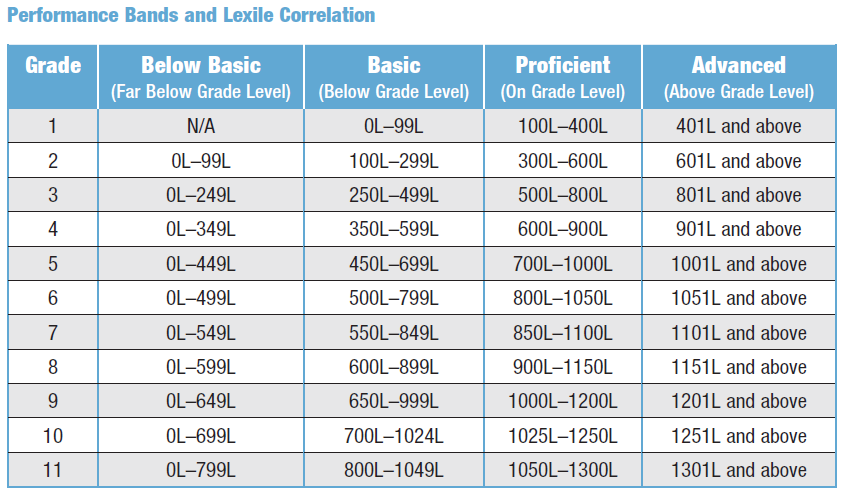
You can pick up on new information, establish connections between yourself and some of the characters, and even improve your understanding of the overall story.
Similarly, allowing your child to read their favorite books for the second, third, fourth (or more) time will enable them to get more from the story.
It also allows for bonding. Did you know that rereading books can help bring your family closer together?
Many of us remember a couple of books that our family read together regularly. This can be a holiday book or a favorite story. Rereading is a great way to get the whole family involved, as everyone can take turns reading and connecting on the same story.
What’s more, reading familiar books can actually help develop a young reader’s fluency. It allows them to learn the words and helps them become familiar with narrative structure or storylines (i.e. beginning, middle, and end), which builds reading comprehension later on.
So feel free to let your child choose the same book over and over!
FAQs About Reading Levels
What Reading Level Should My Child Be In Each Grade?
It’s challenging to answer this question because each child is different and will naturally develop at their own pace.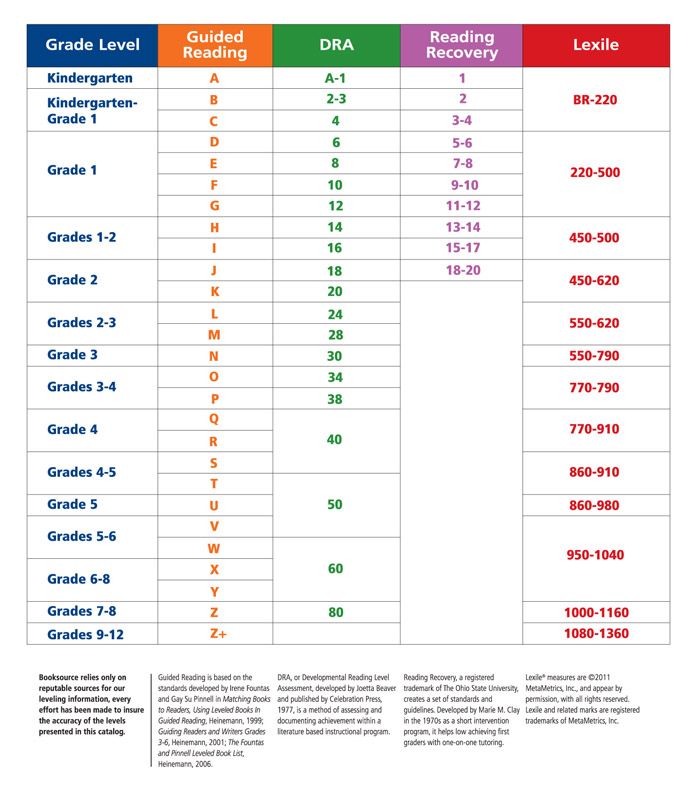 For example, just because your child’s friend has started reading fluently doesn’t mean your child will be able to do that yet.
For example, just because your child’s friend has started reading fluently doesn’t mean your child will be able to do that yet.
While no parent wants their own child to be a little behind compared to their peers, putting too much pressure on them to “catch up” might actually have an adverse effect. In fact, they might feel overwhelmed by the pressure and develop a negative attitude toward reading.
It’s also important to note that there’s no direct link between a certain Lexile measure and a specific grade level. When using any of the reading level measures we mentioned, remember that they are an estimate of a child’s performance and shouldn’t be interpreted literally.
Also, if you’re really concerned about your young learner’s development, you can always address those concerns with their teacher or another professional. They can offer tips and advice on how to best work with your child.
Finally, remember to be patient and positive no matter what. With lots of time and effort, your child will develop a lifetime love of reading!
Who Can Help Me Choose Books That Match My Child’s Reading Level?
The best place to start is to consult your child’s teacher.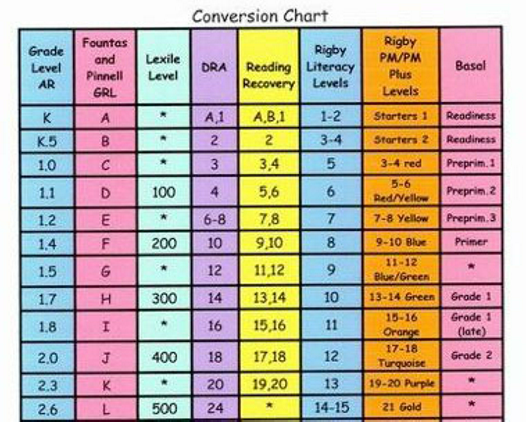 They will have the expertise to guide you in buying the right books for your child.
They will have the expertise to guide you in buying the right books for your child.
It’s also possible for you to look up most books online and find their reading levels. Furthermore, for beginner readers, there are publishers who label books in stages with age and/or grade suggestions attached.
If you’re homeschooling, you can also reach out to your local librarian or bookstores. As people who spend each day surrounded by books, they often have knowledge on this topic and may be able to recommend a few relevant books in your child’s reading level.
What If My Child Is Reading At A Lower Level?
The last thing a parent wants to hear is that their child’s reading level isn’t on par with their peers. But what can you do if, from the assessment used at your child’s school, you find out that your young learner is reading below the average grade level?
Firstly, it’s important not to panic. As mentioned earlier, kids develop reading skills at different stages of their development.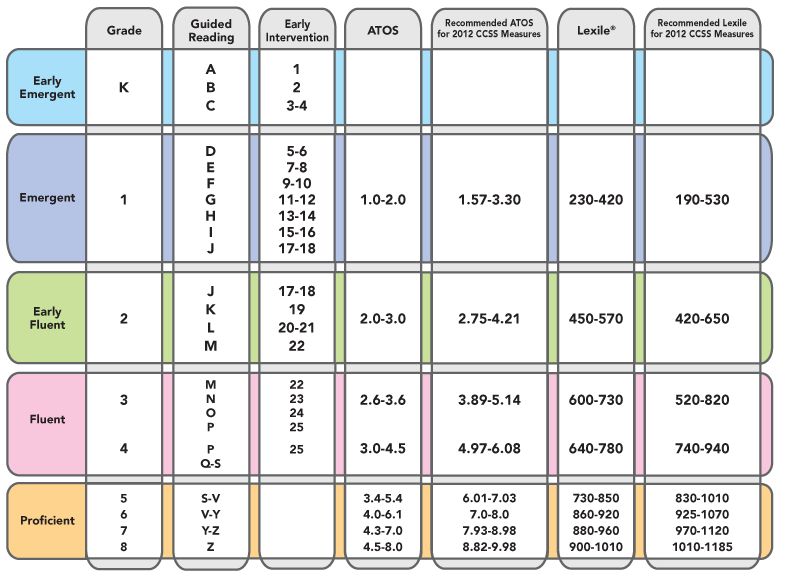 Some children might be early readers, while others may take time to get there.
Some children might be early readers, while others may take time to get there.
The most effective way to help your child improve their reading level is by continuing to encourage reading at home. While reading, remember to discuss the content to ensure comprehension.
Reading For Fun
From assessments to the five-finger rule, determining reading levels varies across the board. No matter which method you choose, remember these measurements are meant to be helpful and encouraging, not stressful and limiting.
Keep this in mind when assessing your young learner. You don’t want your child to sense any stress about their abilities, as this might overwhelm them and have an adverse effect on how they view reading.
While reading is an essential early learning (and lifelong) skill, you want your child to LOVE reading and not only view it as a test of their intelligence.
At the end of the day, the way reading makes your child feel is more important than their reading level.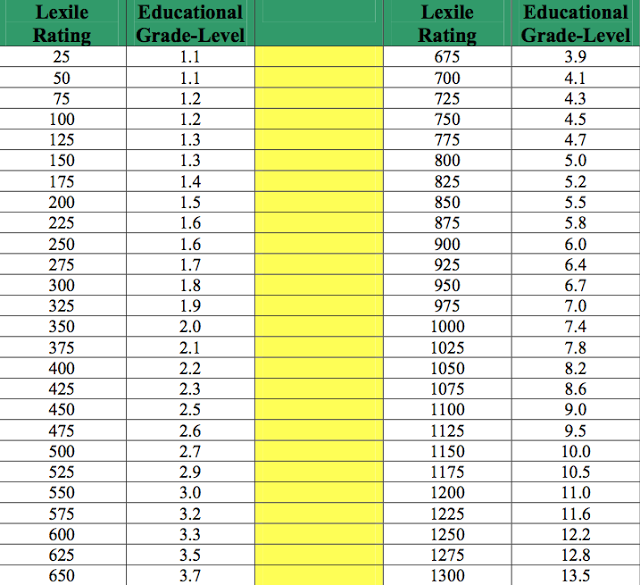 Each child learns in a way that’s special and unique to them.
Each child learns in a way that’s special and unique to them.
The HOMER Road To Reading
The road to discovering how to read can be a fun ride, but sometimes it’s bumpy. This is why we’re more than a learning program. We’re your learning partner.
If you’re looking for a resource to help develop your child’s love of reading and learning, consider taking a look at the HOMER Learn & Grow app. It’s full of stories curated based on your child’s interests!
When your child develops a love for reading, they’ll move up to the next level before you can say “Developmental Reading Assessment”!
Author
How to determine the level of an English student without a test? They keep coming and coming, and you keep typing the same English test. I want something fresh, like a sudden cold autumn wind and +10 outside the window.
What if I say that you can remove all formalities on paper and determine the level of a student just by talking to him? If you already know how to do this, you are super , if not, join us and determine the level of any student like a pro.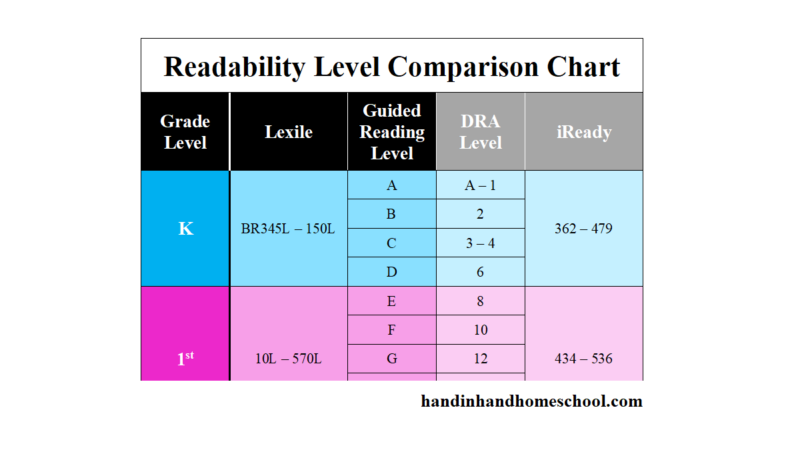
Why didn't you like the test?
It's no secret that very often a written test fails us, and the student either blindly guesses the answers, or selects the most “sounding” one from the already proposed options. So we get the "elementary", who guessed at the "intermediate". (Lucky, damn it, I would be so lucky when I passed the session). At the same time, the dialogue with such a student will never let you down and you will see his real and active store of knowledge.
How to determine the level without a test?
Start your acquaintance with general questions that will require the student to answer with certain grammar and vocabulary - here he will not be able to peep on Google or beautifully go into the sunset to meditate, drink tea, think and answer later.
The logic is as follows: at the Beginner level, the student must link at least a couple of words, at Elementary, actively use Present Simple, Past Simple, Comparative and Superlative adjectives, at Pre-Intermediate, be able to speak in Present Perfect and use basic Modal verbs, and so on incrementally .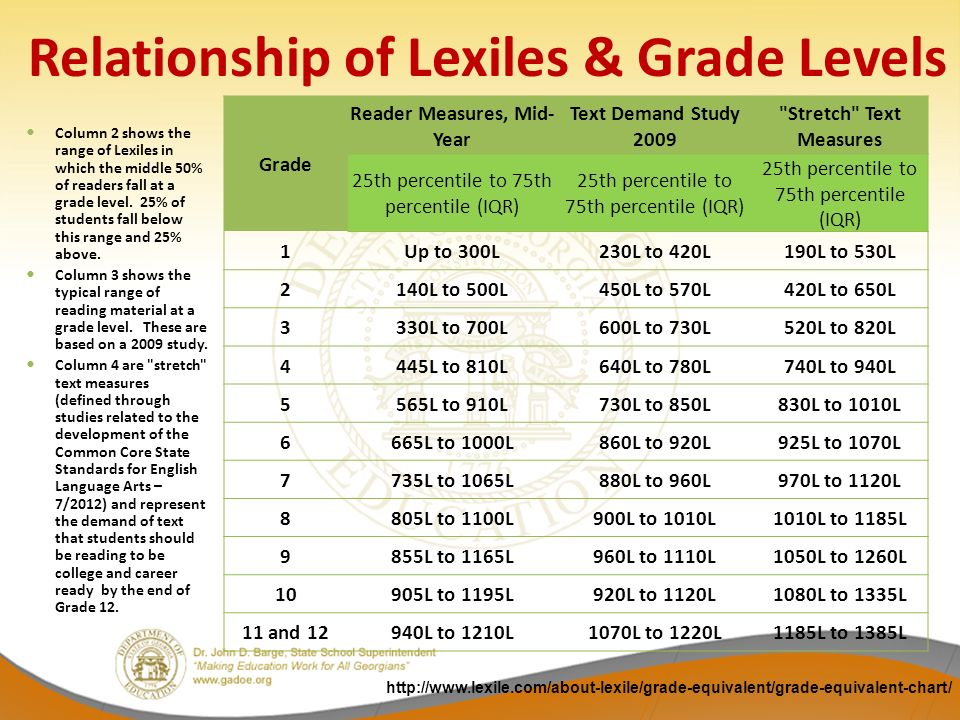
You can also use these sets of questions that correspond to English levels:
Beginner
What’s your name and surname? Spell it, please.
Talk about your family members.
Describe your typical morning on a weekday.
Name 3 things you can do. Do you like doing it?
Describe the area where you live. What is there near your house?
What did you do last weekend / on your last holiday?
Elementary
How do you spend your free time? Name a few things you're doing now.
When was the last time you were at the cinema?
Who is your mother's brother in relation to you?
Who is your brother's daughter?
My aunts is (my mother's sister)
My cousin is (my uncle's son/daughter)
What's the past form of buy, go, sleep, hear, leave, lose.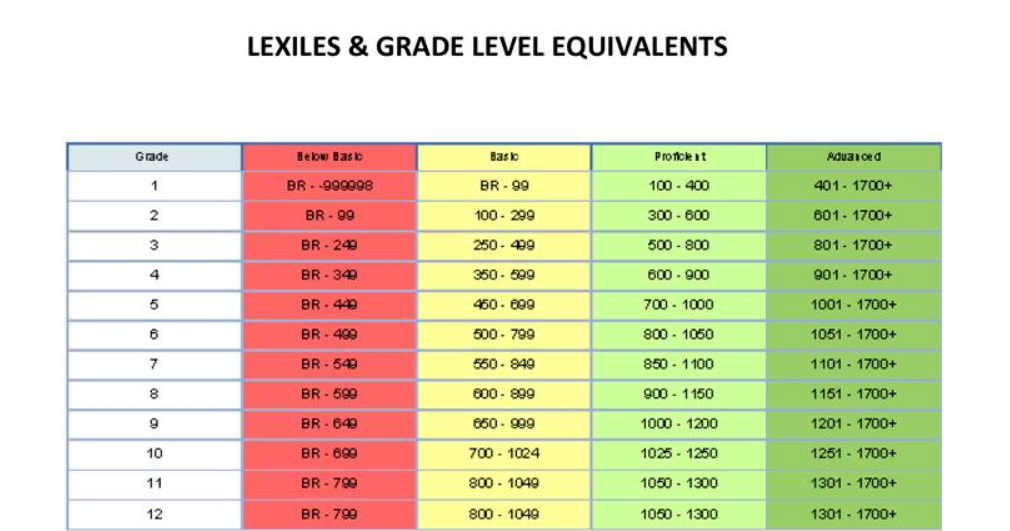
Describe your last holiday.
How much water do you drink a day? How many photos do you have on your mobile?
Is it better to study English in class or online?
What's the happiest moment in your life?
Pre-Intermediate
What were you doing this time two days ago / before this interview?
Tell me about your plans for the future.
What will our live look like in 50-year time?
How long have you studied English? Have you ever been to an English-speaking country?
What rules do you have at your work / school / university?
What will you do if you can't get to sleep tonight?
Intermediate
How long have you been studying here?
What task have you been able to complete recently?
As a child, what did you use to be frighten of?
What are the best three things that have been invented in the last 25 years?
If you went back in time, what year would you go to? Why?
What is something you can't stand doing? Talk about some difficult choices you have made recently.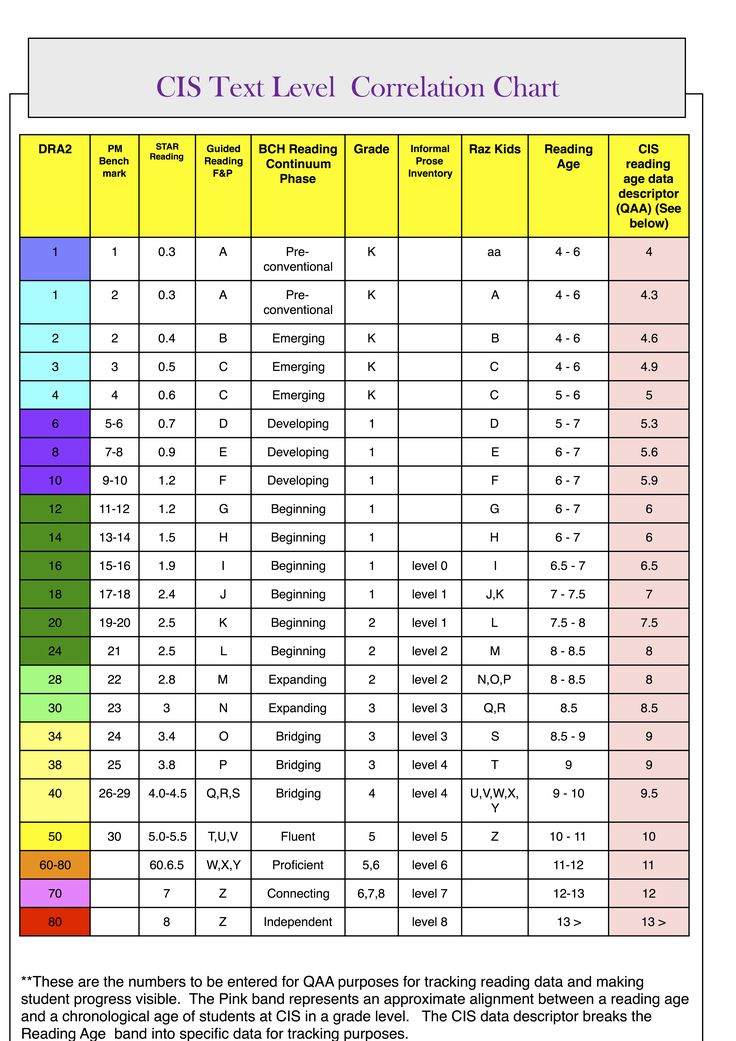
Upper-Intermediate
Do you follow fashion? Why/Why not?
What are the main environmental issues and are there any practical solutions to them?
Good things come to those who fly. Do you agree with this statement?
Is there anything you are getting used to now? Is it easy for you to do? What adjustments have you had to do?
What do you think the most common crime in your country is? Is it possible to root it out?
How does advertising influence your consumer ability?
Advanced
Choose one topic from the list below. Talk about it for one minute:
- Beauty gets the attention. Personality gets the heart.
- The language we use influences the way we think.
- Money is not the only answer but it makes a difference.
What do the following idioms mean: out of the blue, a red herring, to be caught red-handed;
Talk about your most exciting travel experience.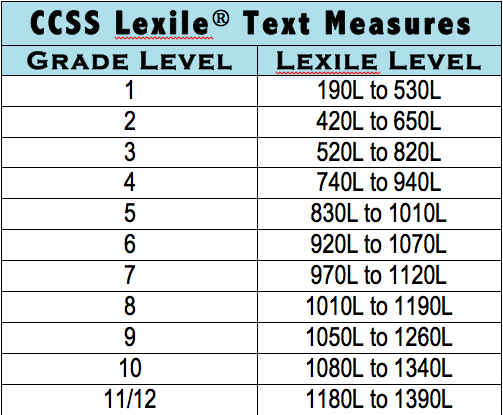
What’s the difference between lie and lay, beside and besides, affect and effect?
How can these questions be supplemented?
Option 1. If you don’t want to seem like an investigator who only does what he asks questions and for some reason asks where the student lives and with whom and what time he goes to work and whether he has an angry dog ... In general , if you do not want to look suspicious, you can offer a simple Power Point game called Spin the Wheel.
Option 2. For those who have enough time, I can offer a written assignment. It can be both an essay on a topic, and editing the text and working on mistakes. As a material for correction, you can use the compositions of other students (why not, if you accidentally fell asleep yesterday and forgot to prepare for the lesson, there will always be a couple of old compositions). But just in case, catch ready-made tasks - edit worksheet, edit worksheet -2 , make the spelling corrections.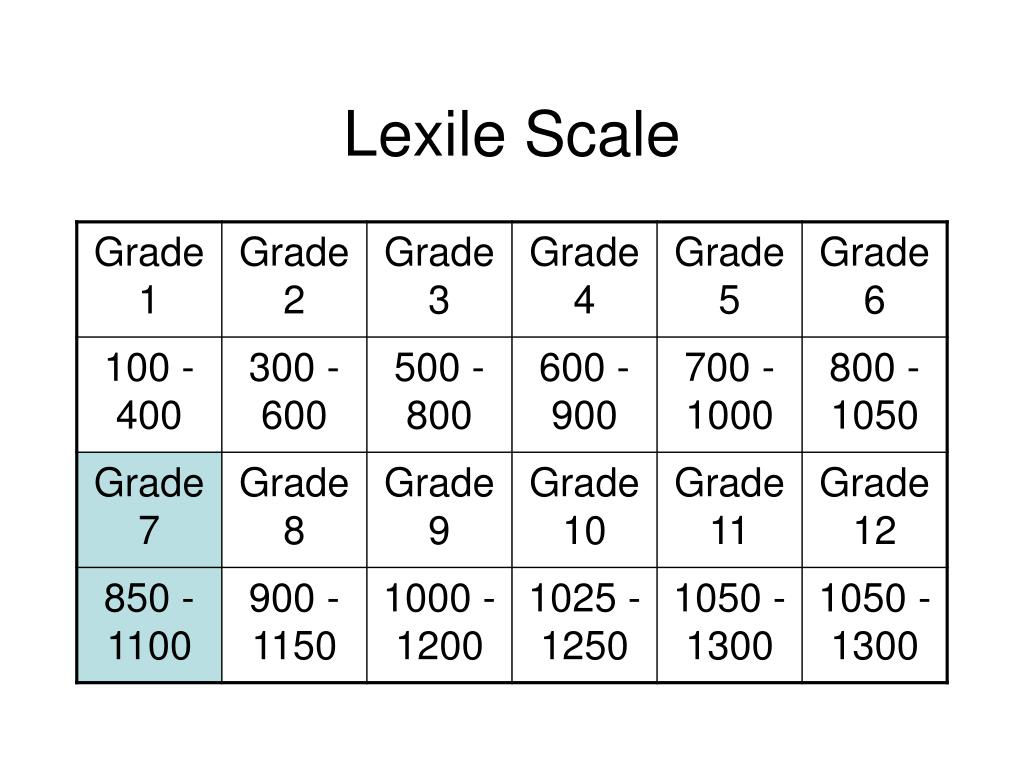
Don't give up on good old tests completely - they are useful. But remember that the light did not converge on them like a wedge. The more assessment methods you use, the more complete the picture of your student's knowledge and background will be, and the more productive your collaboration will be.
save the first texts and works of your student to later show him how much he has grown and learned English! He will be pleasantly surprised and this motivates him to develop and improve his skills!
comments powered by HyperComments
Support #Teachaholic if you find our work useful 💜
We have been developing the magazine on our own for more than 2 years, and now we really need your support!
If our materials at least once turned out to be useful to you, if you used them in your lessons and delighted students with fresh ideas, you can say “Thank you” to us and make any comfortable contribution to our work in the form of a donation.
As a token of gratitude, we will send access to the webinar "Career prospects for an English teacher" to everyone who makes a donation, regardless of the amount.
Your Teachaholic.
#Teachaholic🧡
Hello Teachaholics! We have launched a new service for English teachers called "Methodological Assistance"👏👏
This is a service with which every teacher can get an assessment of the effectiveness of their lessons, an online consultation from an experienced methodologist and a clear plan for professional development!
Intermediate or Upper-Intermediate? ‹ engblog.ru
…and you can also check your English level with the full proficiency test →
Intermediate - the fourth level of English proficiency. Many people finish their English studies after the level Intermediate , because the knowledge gained is enough for a tolerable knowledge of the English language. At this level, the lexical base is significantly expanded, a lot of words are learned that are necessary for adequate communication with a native speaker.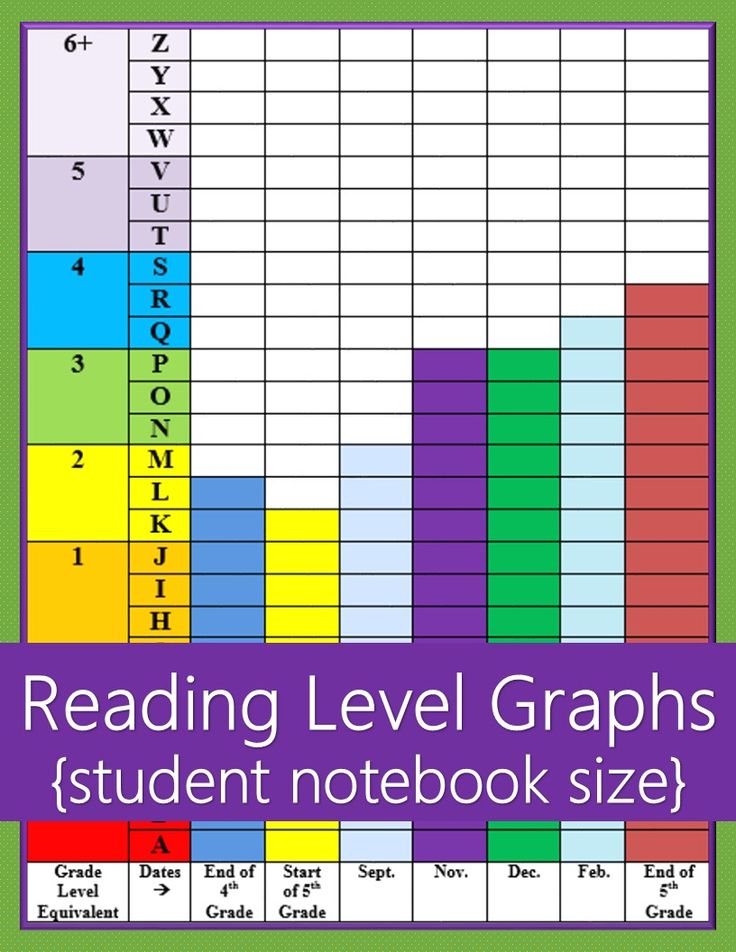 Knowledge of grammar is consolidated, the main attention is paid to syntax. At this level, a significant part of the time is devoted to speaking and listening. Of course, you will not be able to communicate on philosophical topics, discuss politics and read financial reports, but this level is quite enough for everyday communication.
Knowledge of grammar is consolidated, the main attention is paid to syntax. At this level, a significant part of the time is devoted to speaking and listening. Of course, you will not be able to communicate on philosophical topics, discuss politics and read financial reports, but this level is quite enough for everyday communication.
Level Upper-Intermediate - for those who do not want to stop at everyday communication. Here the study of the official style of speech begins, a large layer of phraseological units and idioms is learned. Grammar at this level is mostly repeated, its use in colloquial speech is honed. At level Upper-Intermediate speaking takes up most of the lesson. It is at this level that the advantage of individual lessons with a tutor (for example, English via Skype ) becomes obvious. Not all textbook series have level Upper-Intermediate (and Advanced ). Also, the level Upper-Intermediate can be considered as preparation for the Oxford exam FCE ( First Certificate in English ).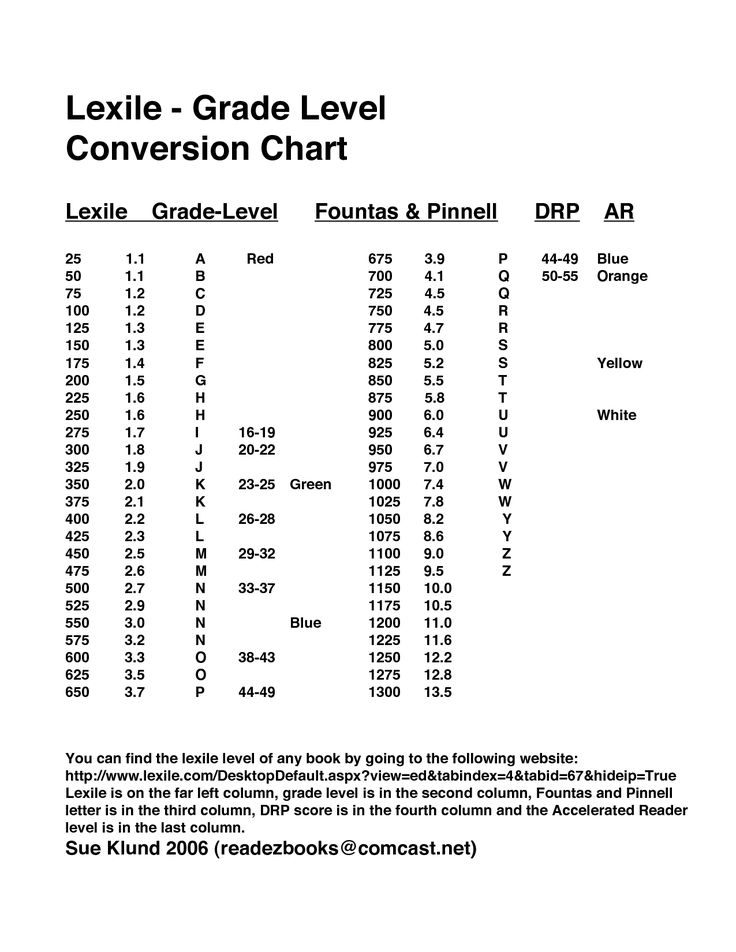
The following test will help you understand how you have mastered the material of level Intermediate and whether you are ready to move on to Upper-Intermediate and prepare for FCE .
Test key
If you scored less than 10 correct answers - your level is Intermediate . Review grammar and learn new vocabulary!
If you scored more than 10 correct answers - your level is Upper-Intermediate . Start your journey to advanced English proficiency.
If you answered 19-20 questions correctly - perhaps your level of knowledge is higher, take the test Upper-Intermediate or Advanced .
Test
Level Test: Intermediate or Upper-Intermediate?
Choose the correct answer
Exercise 1.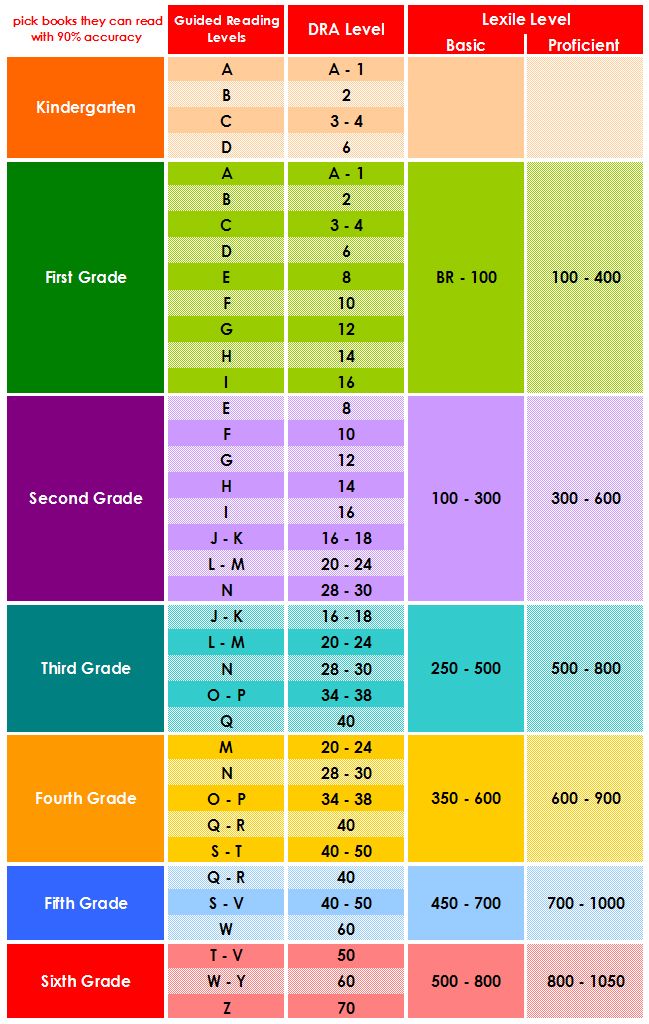
She was very tired, … she could not sleep.
-
although
-
despite
-
yet
Task 2.
She … get a job as a teacher. She loves children.
-
ought
-
hopes
-
might
Task 3.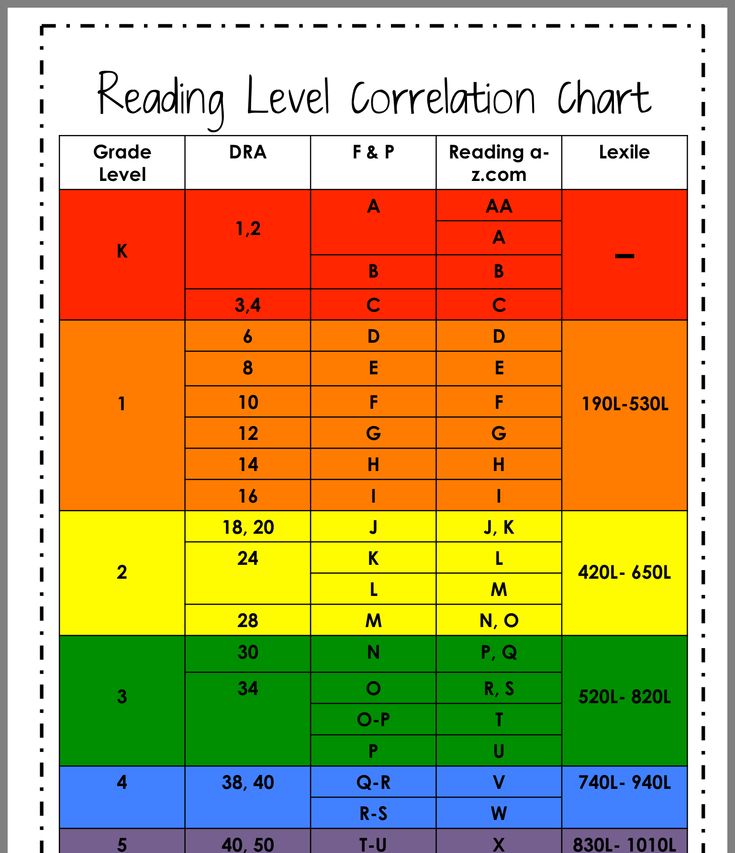
“I love going to the beach.” “…”
-
Neither do I
-
So do I
-
Nor do I
Task 4.
By the time the rain stopped, we … two pots of coffee.
-
have drunk
-
had drunk
-
had been drinking
Task 5.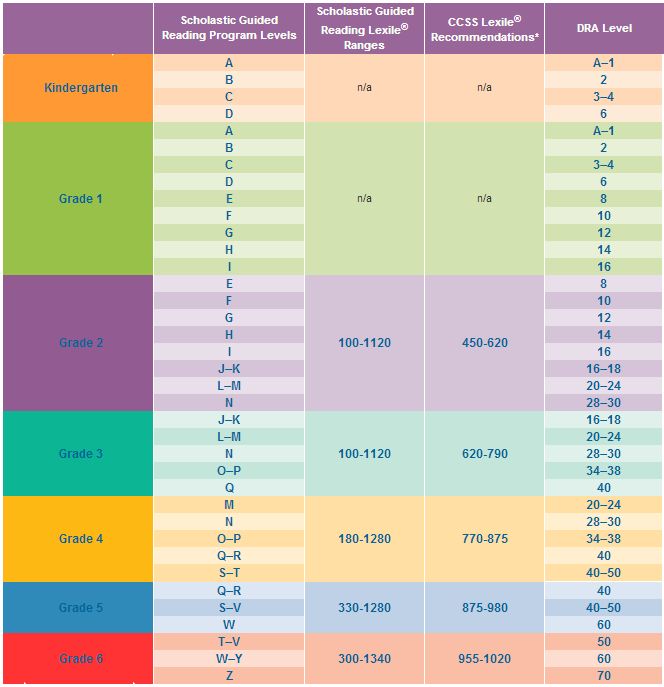
We're going to the theater … a play.
-
see
-
seeing
-
to see
Task 6.
Do you have a pet, … ?
-
hasn't you
-
don't you
-
have you
Task 7.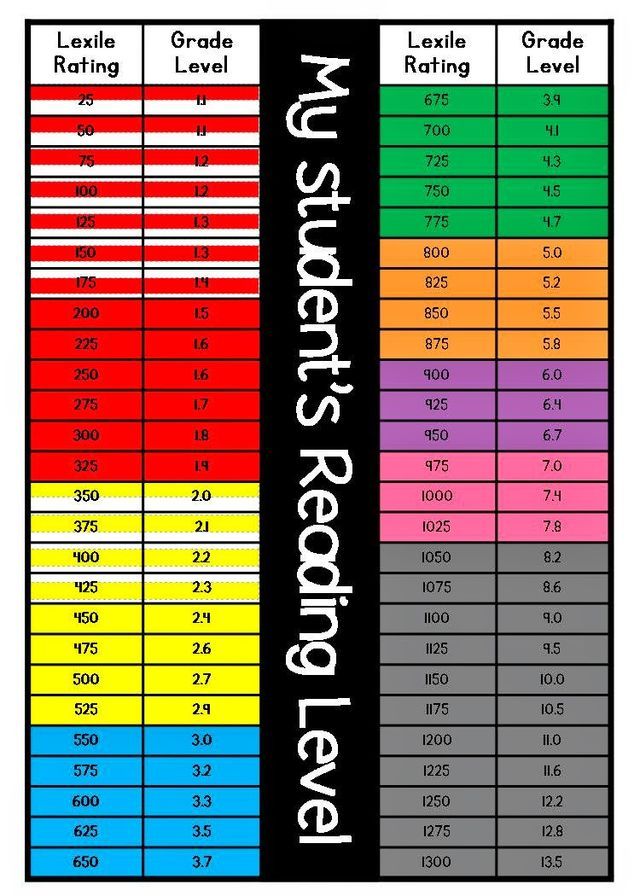
If you had studied more, you …… the exam.
-
would have passed
-
would pass
-
will pass
Task 8.
He can't decide who … to his birthday party.
-
to invite
-
invite
-
inviting
Task 9.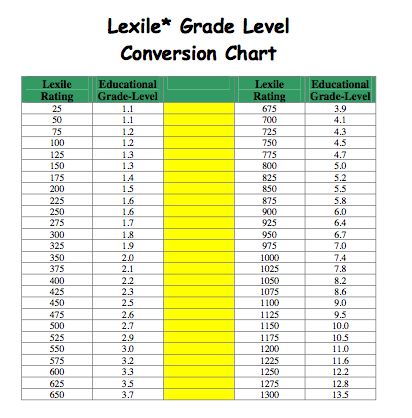
I tried on two pairs of trousers, but … of them fitted me.
-
both
-
neither
-
either
Task 10.
He's tired. He … properly for days.
-
didn't sleep
-
doesn't sleep
-
hasn't slept
Task 11.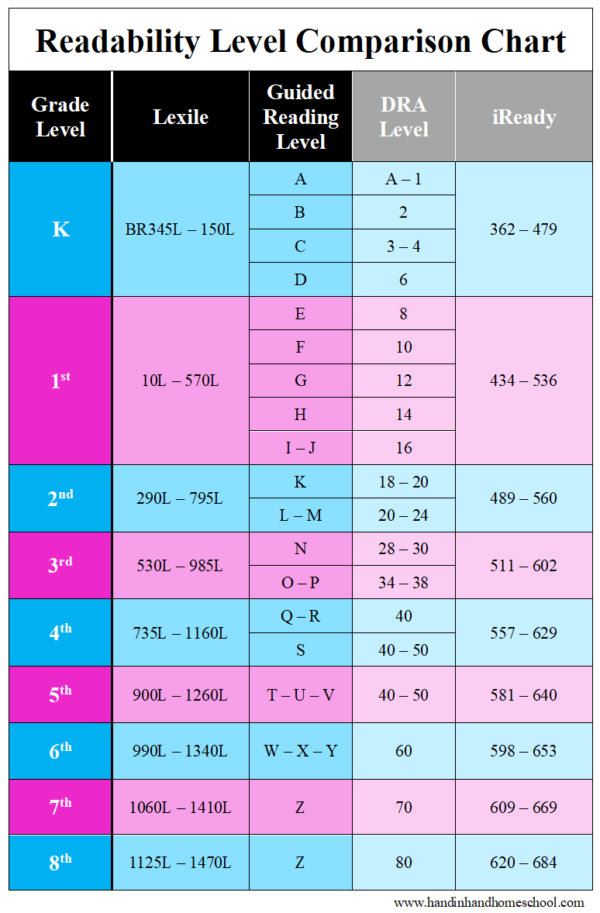
If I had a bigger flat, I … a party.
-
have
-
will have
-
would have
Task 12.
He … be famous. I've never heard of him.
-
must
-
can't
-
mustn't
Task 13.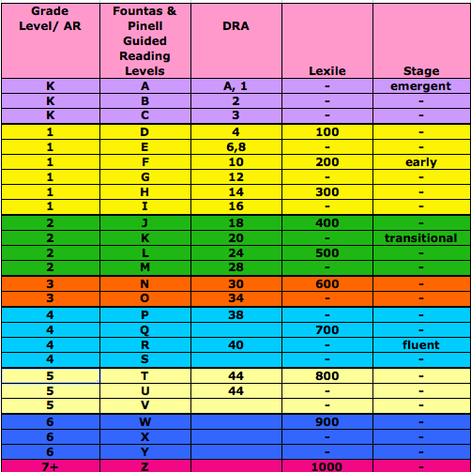
I have … received a letter from my pen-friend.
-
just
-
still
-
yet
Task 14.
When I opened the door, there wasn’t …… there.
-
someone
-
no one
-
anyone
Task 15.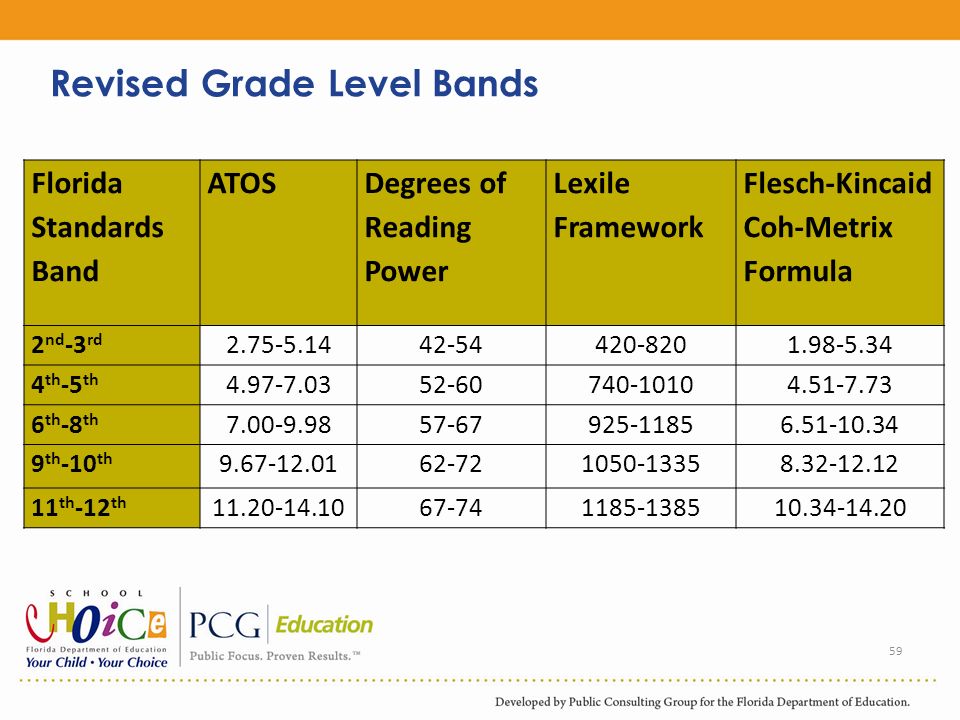
I live in the city, so I … busy traffic.
-
am used to
-
get used to
-
used to
Task 16.
When I buy a new house, I … every room myself.
-
paint
-
will paint
-
would paint
Task 17.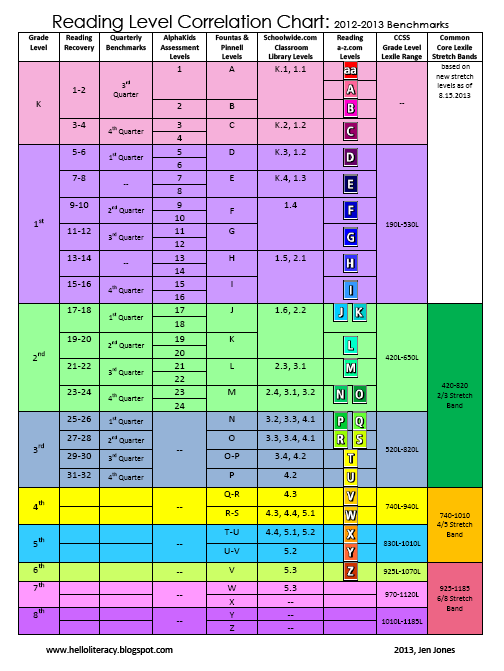
We must run to the cinema. The film … in five minutes.
-
starts
-
is starting
-
will start
Task 18.
It’s no use … about the exam results. You'll know soon enough.
-
worry
-
to worry
-
worry
Task 19.